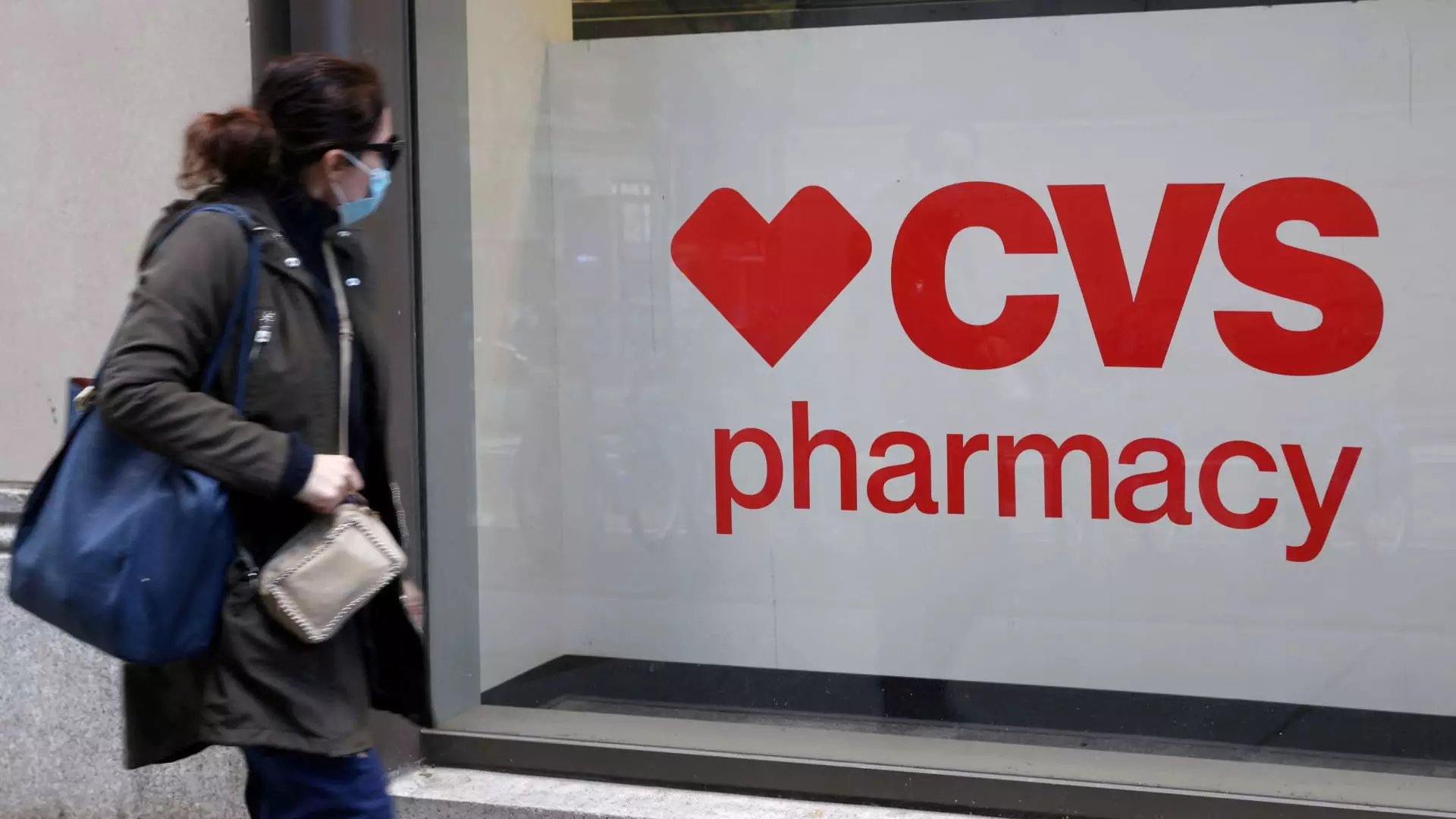CVS Health recently reported its first-quarter revenue and adjusted earnings, both of which fell short of expectations. This disappointing performance was a result of higher medical costs plaguing the U.S. insurance industry. As a consequence, the company slashed its full-year profit outlook, citing challenges with higher medical costs persisting throughout the year. The adjusted earnings projection for 2024 was drastically reduced to at least $7 per share from the previous guidance of at least $8.30 per share, much to the surprise of analysts who were expecting a full-year adjusted profit of $8.28 per share.
Following the announcement of these underwhelming results, CVS Health’s shares plunged nearly 18% on Wednesday, marking one of the worst days for the company’s stock since November 2009. This sudden and substantial decline reflects the market’s strong reaction to the revised profit outlook and the challenges faced by the company due to escalating medical costs within its insurance business.
One of the key factors contributing to CVS Health’s financial struggles is the broad-based utilization pressure experienced in its Medicare Advantage business. This pressure was particularly evident in areas such as outpatient services, supplemental benefits, inpatient utilization, and pharmacy usage, which surpassed the company’s initial projections. The company’s CEO, Karen Lynch, highlighted these challenges during an earnings call and emphasized the need to enhance Medicare Advantage margins in the future to combat the current difficulties.
Challenges in the Health Insurance Segment
CVS Health’s health insurance segment, which includes Aetna, has been grappling with various issues, including disappointing 2025 reimbursement rates and obstacles related to the government’s Inflation Reduction Act. These factors have further complicated the pricing environment for Medicare Advantage plans, creating additional hurdles for the company to navigate. The overall outlook for the health insurance segment remains challenging, with uncertainties around future profitability and sustainability.
In response to these challenges, CVS Health has been working towards transforming itself from a major drugstore chain into a comprehensive healthcare company. The company’s strategic acquisitions of health-care providers like Signify Health and Oak Street Health signify its commitment to expanding its footprint in the healthcare sector. However, the changing landscape of the health insurance industry, as evidenced by the shifts in pharmacy benefit manager (PBM) preferences by clients like Tyson Foods and Blue Shield of California, underscores the need for CVS Health to adapt its business model to remain competitive.
Financial Performance and Projections
The first-quarter results reported by CVS Health revealed mixed outcomes, with adjusted earnings per share falling short of expectations and revenue showing modest growth. Despite the positive sales performance in the health insurance and pharmacy segments, issues like the decline in the health services segment revenue and the loss of a significant unnamed client have raised concerns about the company’s overall financial health. The medical benefit ratio increase, driven by Medicare Advantage utilization and star rating impacts, further compounds the challenges faced by CVS Health in managing costs and profitability.
Future Outlook and Strategic Initiatives
As CVS Health navigates through these financial struggles and operational hurdles, the company will need to focus on enhancing efficiencies, streamlining operations, and developing innovative solutions to address the evolving needs of the healthcare market. By leveraging its existing strengths in the pharmacy network and health services, CVS Health can position itself for long-term success and sustainable growth. However, the current market dynamics and regulatory environment pose significant challenges that require proactive management and strategic decision-making from CVS Health’s leadership team.
The financial struggles faced by CVS Health underscore the complexities and uncertainties inherent in the healthcare industry. With a rapidly shifting landscape, evolving consumer demands, and regulatory challenges, CVS Health must navigate these hurdles with agility, resilience, and a strategic vision to emerge stronger and more resilient in the increasingly competitive healthcare market.

Leave a Reply